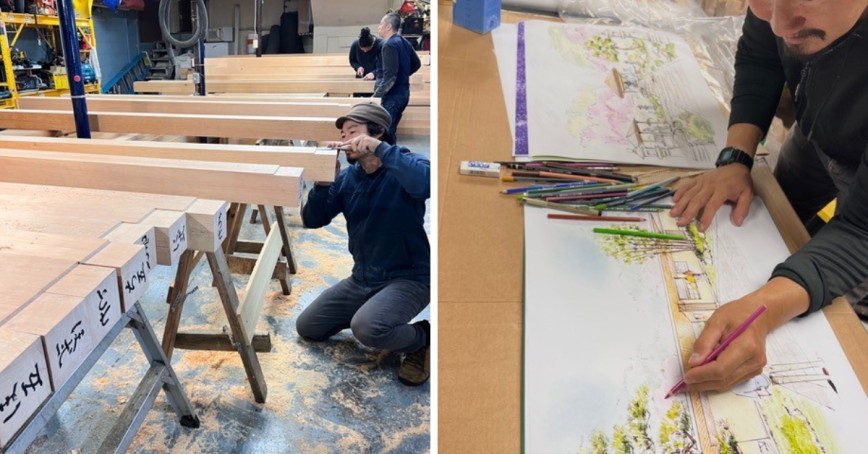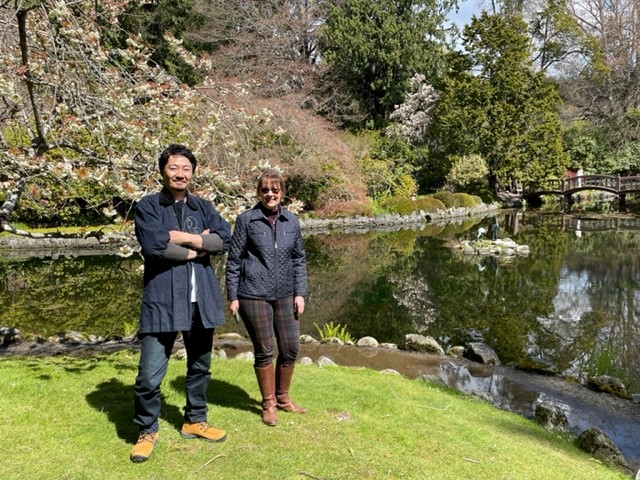 https://rruinbloom.ca/wp-content/uploads/2025/06/2408_TeahouseOpening-0994.jpg
1365
2048
Stephanie Clay
https://rruinbloom.ca/wp-content/uploads/2021/03/royal-roads-university-logo-white.svg
Stephanie Clay2025-06-03 12:20:292025-06-03 12:20:29Experience Chadō – Japanese Tea Ceremonies – at Hatley Park this summer
https://rruinbloom.ca/wp-content/uploads/2025/06/2408_TeahouseOpening-0994.jpg
1365
2048
Stephanie Clay
https://rruinbloom.ca/wp-content/uploads/2021/03/royal-roads-university-logo-white.svg
Stephanie Clay2025-06-03 12:20:292025-06-03 12:20:29Experience Chadō – Japanese Tea Ceremonies – at Hatley Park this summerJapanese Gardens
As the only university in Canada located within a national historic site, RRU welcomes 50,000+ visitors from around the world to Hatley Park annually. Many of these visitors, spend time wandering through and admiring the beauty and tranquility of the Japanese Gardens, which were established in the 1910s by Isaburo Kishida and Tadashi Noda.
Designed to foster a deep connection with nature, these gardens have promoted tranquility and contemplation for more than a century through their carefully arranged elements, reflecting a profound cultural understanding of harmony and simplicity, and serving as a space for great thinkers and changemakers to experience peace and mental well-being.
Now more than 100 years later, this peaceful oasis requires restoration and revitalization.
RRU is advancing a full-scale restoration and expansion of the Japanese Gardens, which will include a teahouse with a surrounding garden, a new entrance gate and wall with a mikoshi room, a Zen garden, an Iris garden, a Moss garden, a cherry blossom community area and bonsai garden, upgrades to the pond, waterways and pathways, and interpretive and wayfinding signage, increasing accessibility for our community.
Our vision: To curate a destination Japanese Garden for Canada’s West Coast while restoring the gardens to their former splendor.
Bringing the Vision to Life: The Japanese Gardens restoration and expansion is a multi-phase initiative. Thanks to generous donor support, the first phase – the establishment of a Japanese teahouse, where community members can gather for tea ceremonies and other community events – was completed in August 2024. Through a partnership with the Urasenke Tankokai Victoria Association, Royal Roads is now pleased to offer tea ceremony demonstrations for the community, which began in May 2025.
Place-Based Programming: In collaboration with RRU’s faculty, students, and community partners, the Japanese Gardens will serve as a living classroom, offering applied, project-based learning opportunities for graduate programs. These experiences will be complemented by public programming—such as forest bathing, tea ceremony workshops, ikebana, calligraphy, and storytelling—creating a vibrant space for both academic inquiry and cultural exchange.















